Connie Stevens: “What Gives?”
She runs around in bare feet, believes dogs talk, loves one guy, yet flirts with many. She likes fast talkers, spends money like money and will be quick to tell you, “Don’t ever cross me.” She’s a quick thinker, impulsive and lives for the moment. She’s never admitted it to anyone else, but she feels she’s going to die young. Her laugh is infectious, her humor spontaneous and her smile ever-ready. Yet, there’s a side she keeps so well-hidden that only her father dared comment: “I think of Connie as the loneliest girl in the world.”
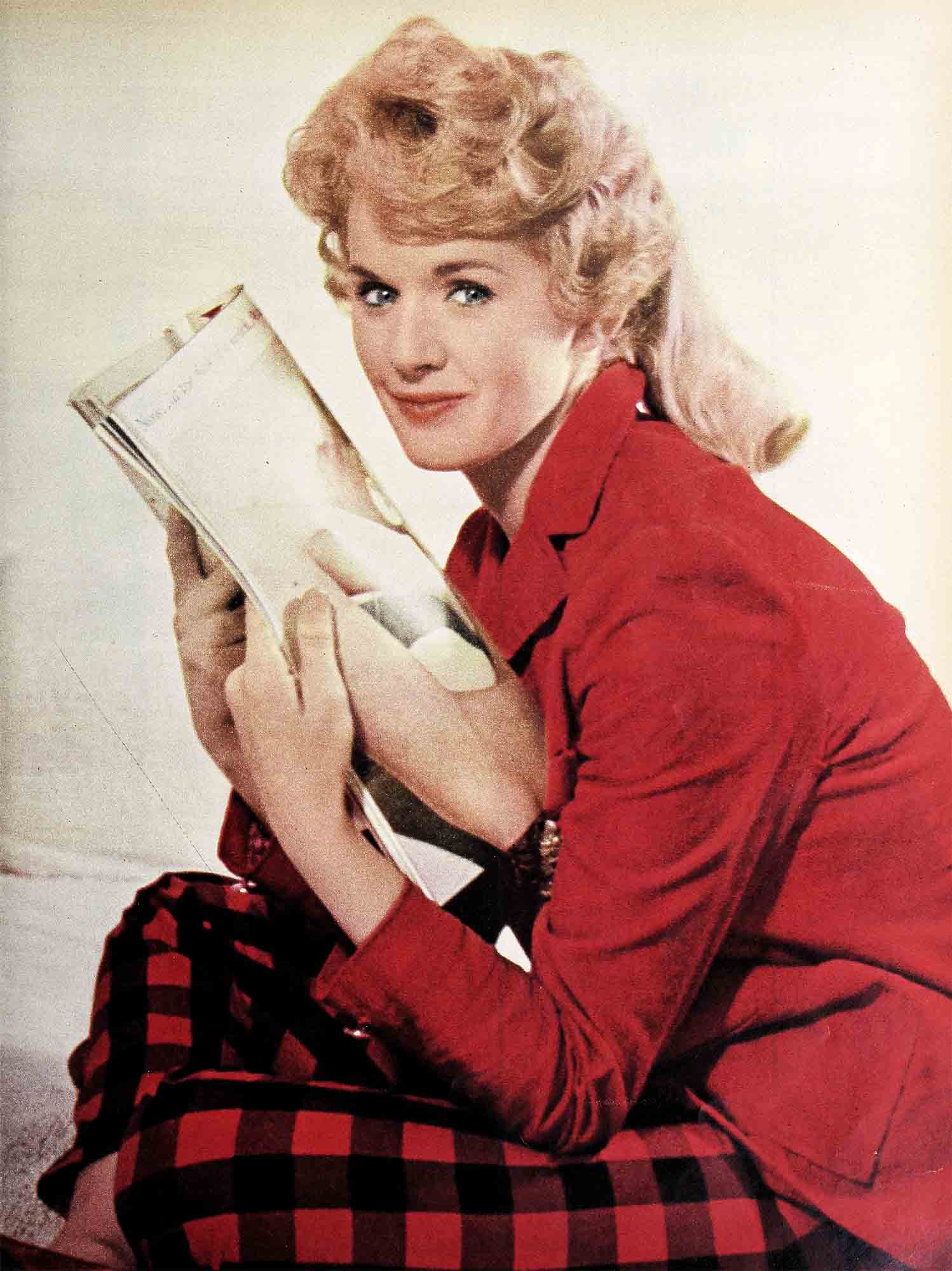
A male friend says, “Connie reminds me of Carole Lombard. She was always smiling to the public, yet underneath it all, she was one of the unhappiest, saddest girls in show business. Like Lombard, whose brief pleasure with Clark Gable was snatched away soon after she found it, I feel Connie’s life will be a tragic one, too.”
Connie hates rules and regulations. She lives by her own code—impulsively. Everything has to be done now, if possible, not tomorrow. Perhaps this is why she feels she is going to die young. She doesn’t comment about her feelings on this, just states it simply.
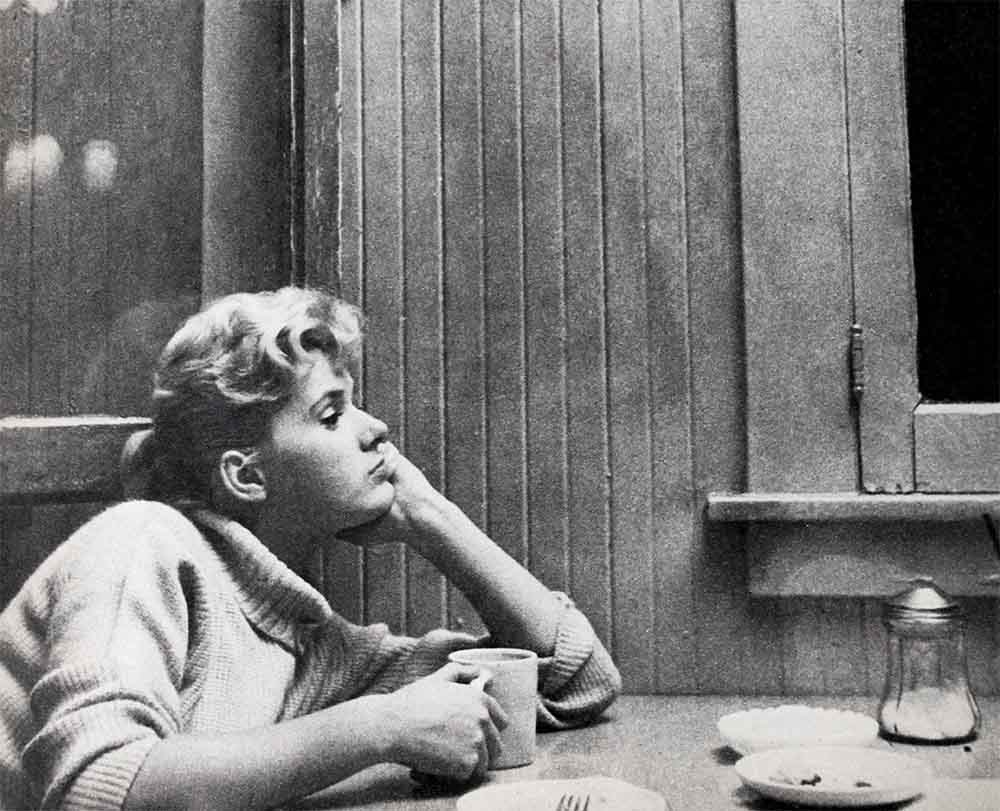
“She’s a strange girl,” one of her closest girlfriends says. “When she seems so satisfied with one thing, her eye and her heart are looking for something else. She seems never satisfied. Not with her career, not with her life, not with her man. She thinks she’s in love with Gary Clarke.” Connie explains, “We’re having career problems. Gary wants to make it before he can think of marriage.” But her friend says, “Sometimes it seems Connie’s just looking for someone to depend upon. She must always have something,” her friend says, “or someone on the string.” But what Connie didn’t tell even her best friends was that, up until recently, she couldn’t have married Gary even if she wanted to. His divorce wasn’t final.
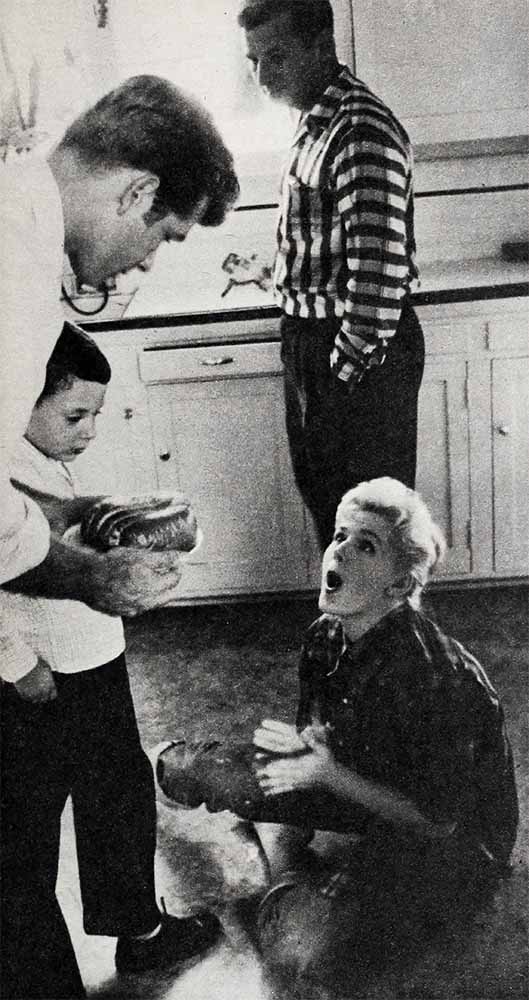
She bought two houses. One for her brother, Chuck, his wife and their three kids. The other one she lives in herself with her father and brother. It’s a bungalow—a stone’s throw from Warner’s studio in North Hollywood. She calls it her “palatial mansion.” The inside hasn’t been furnished yet, but she bought green and white striped awnings to protect it from the penetrating rays of the sun and the Valley heat. It’s always filled with friends or relatives or guys.
Once when I arrived at her house, Gary Clarke was already there and was waiting for Connie to fix breakfast. Connie was sitting at the table with a cup of coffee and waved her arm toward the kitchen. She was wearing a pair of black slacks and a yellow sweater. Her hair wasn’t combed yet and hung all the way down her back. She had no makeup—or shoes. “Never wear ’em,” she commented as she found me staring at them. “I’ll buy 55 pair of shoes at one time, but I’ll hardly wear any of them. I like the feel of the floor and especially my new carpets. I feel like I belong.”
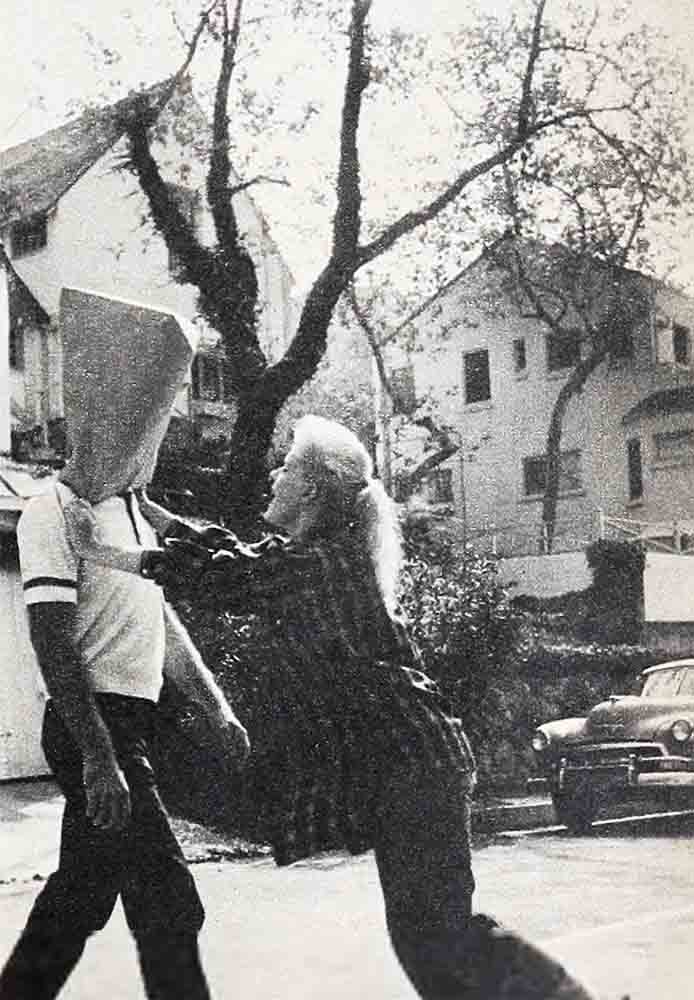
Connie’s father Teddy was in the den room watching television. She yelled to him and asked if he wanted some pancakes. Gary said he did and in two minutes flat the batter was mixed, the grill was heated and Connie was standing over the stove, spatula in one hand, answering the phone with the other and rubbing her toes together.
“My father’s always yelling at me. He wants to know why it’s so difficult for me to close a drawer after I’ve taken something out of it. He says the effort is just the same as when I opened it. It’s funny. I can’t answer him. I guess I’m only interested in the things that give me the most satisfaction. Like my career.”
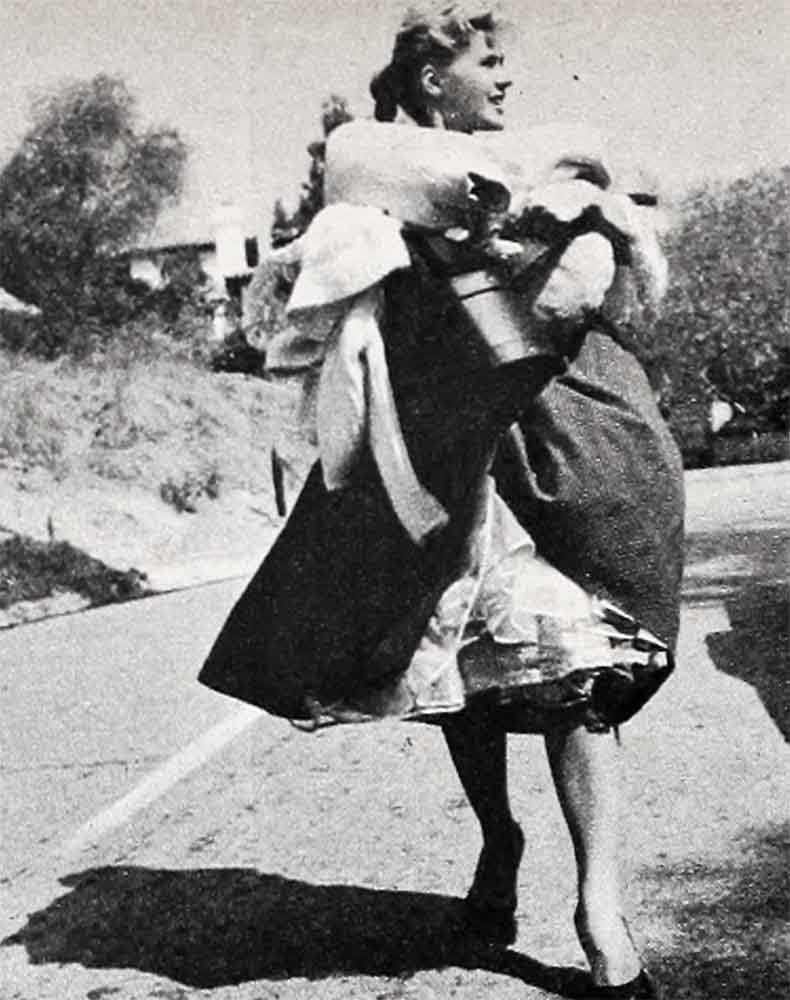
One thing that means as much to Connie as her work is Shane, her dog, a Spitz she’s had for years now. “He was around when the going was rough,” she merely comments. “Funny thing about animals. You never have to worry about them talking back to you. You can tell them everything and they understand everything you’re telling them. When you’re happy, they’re happy, and when you’re sad they’re sad, too. They can just sense your every feeling. Shane is my loyal friend. You know dogs have an uncanny loyalty to you—even more so than people. They never get angry. Only when you play too rough with them. They give you all the love you expect from people.”
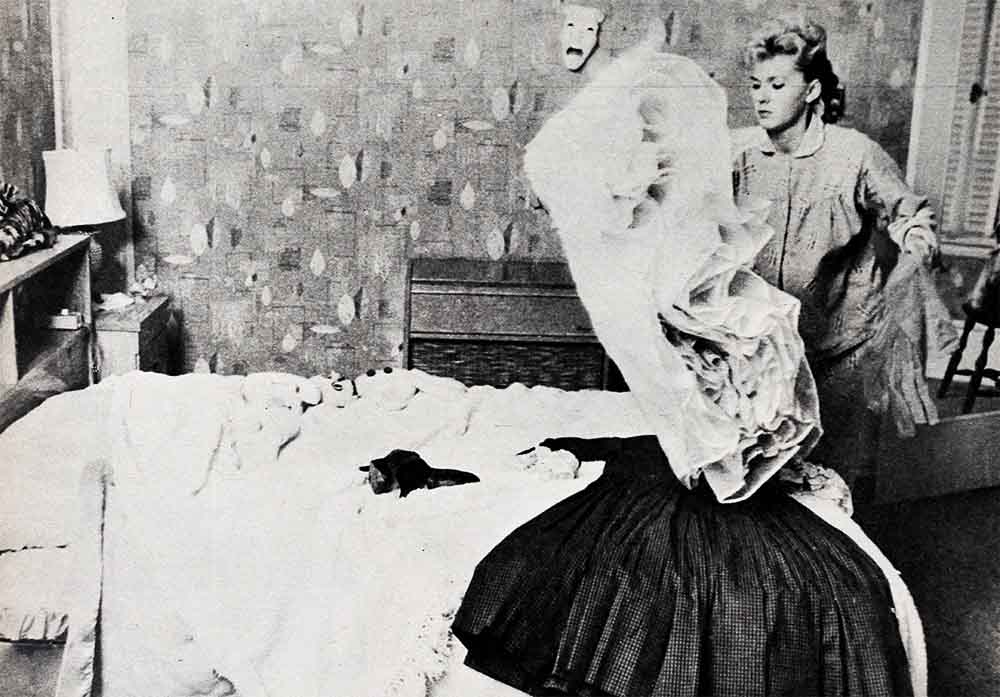
As for her family, somehow you get the feeling that while Connie is so close to her brother Chuck and her father Teddy, really no communication exists between them; they treat her like a kid or more like a buddy, which is okay with Connie. Sometimes you wonder who fulfills her needs for attention and understanding.
Next to dogs, Connie’s closest pals seem to be guys. She’s considered one of the best dates in Hollywood. “Connie makes you feel warm and wanted,” Kenny Miller says, “and before you realize it you’re crying on her shoulder.”
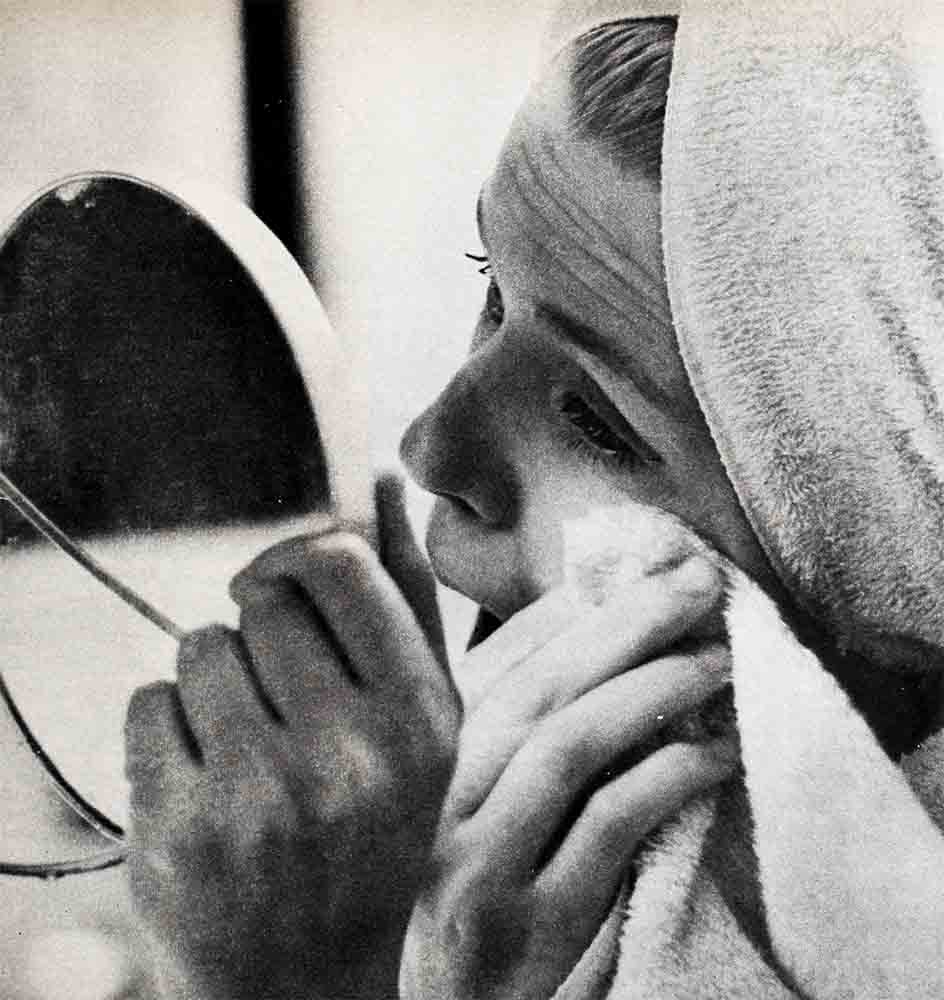
She never cries on anybody’s shoulder. About her roommate for two years, Marianne Gaba, she says, “I found it difficult to communicate with Marianne. We got along just great, but it was hard for me to sit and tell her all the things you dream you can share with just one friend.”
Instead, when she feels low, Connie goes shopping. She’s been known to go wild at times. Like buying fifty-five pairs of shoes, or spending $900.00 at one time in a department store on gifts for no special occasion whatsoever.
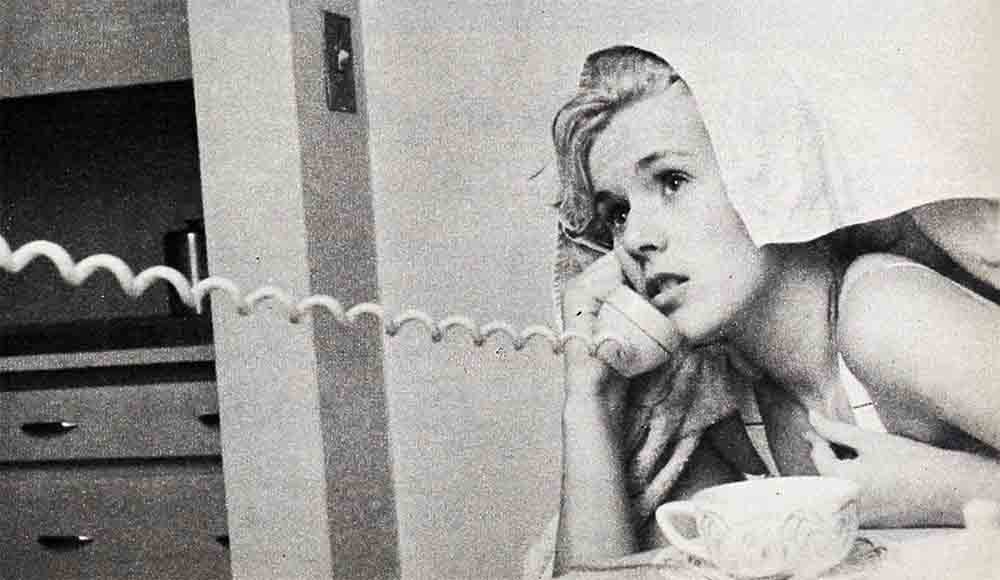
One morning recently, she got up early, so she had some time before she was due at the recording session. She raced her bright red Chevy over to the May Company to buy some hats. She’d already picked out a couple—they just matched two of those fifty-five pairs of shoes—when a stockboy came by and dumped a whole load of new ones on the counter. Connie went wild. One after another, she tried them on.
“I never saw so many hats that I liked,” she told the clerk. She chewed at her lip, trying to decide. “I’m on an allowance, you see.” The woman nodded. Connie stood first on one foot, then on the other. Finally, in a sweeping gesture, she said, “I’ll take them all. Charge it.”
“I’m sorry, Connie,” the clerk said. “Your business manager called just yesterday. He said you’re over your budget and we can’t give you any more credit.”
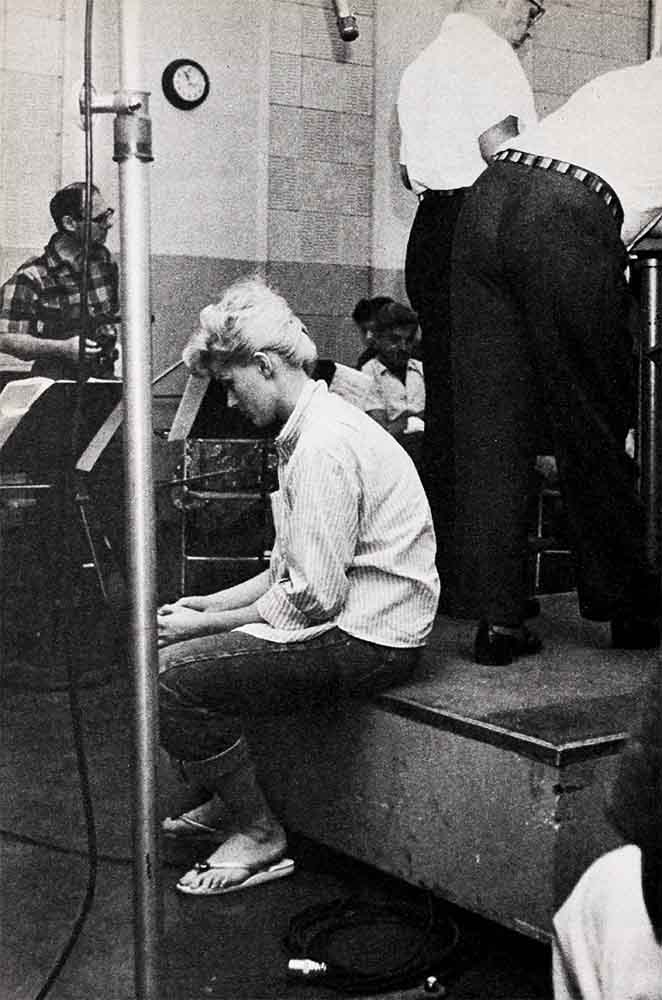
For a moment, Connie frowned, then she perked up. “Well, then,” she said, “I’ll give you my own personal check.
The clerk stuffed the bill and the check into a little metal container and then clicked it into a tube for processing. While they waited, Connie checked her watch. Better get going, she thought. She watched the woman going over her figures. “I get a different answer this time,” the clerk finally said. “The first figure’s wrong.”
“But then my check is wrong, too,” Connie wailed. The woman tried to get it back, and that’s when she found she’d put the check in the wrong tube. It had gone upstairs instead of down. “Never mind,” Connie said quickly. “I’ll write another.” The clerk shook her head. “I can’t take another check till I get the first one back.” Connie groaned, “But that’ll take forever. Why can’t you just take this new check and Lear up the other one later?” The woman shook her head again. “Sorry,” she said, “that’s against store rules.”
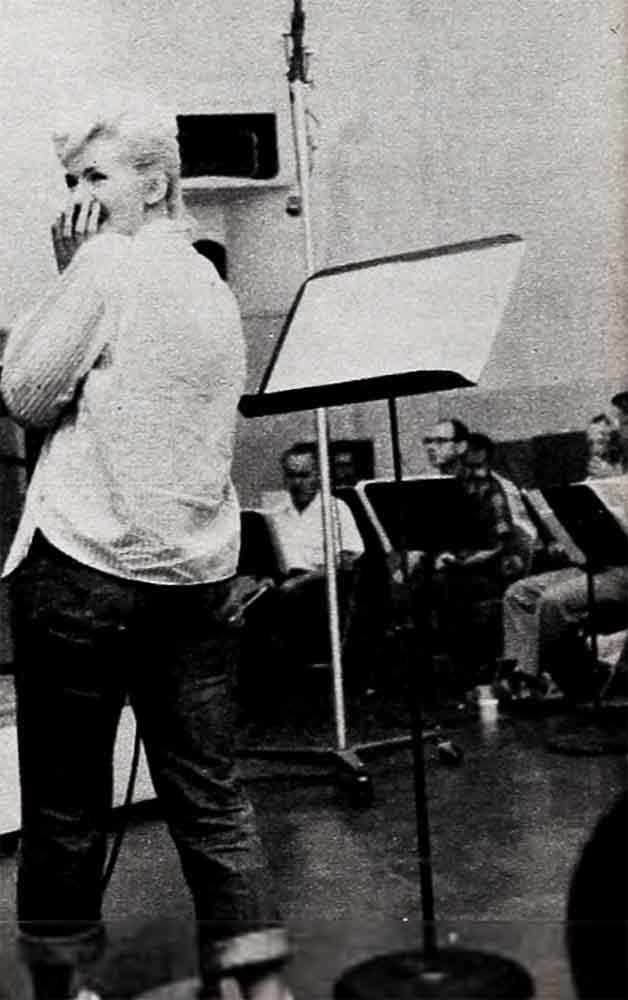
“I hate rules”
“I hate rules,” Connie said later. She was out of breath and late for rehearsals. “I had to stand there arguing for over an hour,” she explained. Then she whirled around. “How do you like my new hat?”
At rehearsals, she snaps her fingers, shakes her head up and down, taps her toes and seems to be having a ball. But she practices her number over and over. If she hits a wrong note, she stops the orchestra and asks them to do it over again. And over and over again, until it’s perfect. Then she gets up on stage and does the whole scene once more. She seems happiest when she’s working, as though it was the most important thing to her and if it was the last thing she was going to do, she was going to be the best darned performer anyone had ever seen.
For that’s how she is. She’s a serious girl who likes to laugh, a girl who runs from warm to cool. She likes hats but not shoes, flips for crowds of people but still feels lonely, is in love with guys, dogs, lasagne—and love. “Don’t cross me,” she’ll tell you, but she won’t tell you about her feeling she’ll die young.
Why? What gives? Connie’s a puzzle. We’ve given you the pieces, for the answer try fitting them together.
—RONA BARRETT
CONNIE’S IN “PARRISH” FOR WARNERS. SEE HER IN “HAWAIIAN EYE,” WED., 9 P.M. EST. OVER ABC-TV. SHE RECORDS FOR WARNER BROS
It is a quote. PHOTOPLAY MAGAZINE JANUARY 1961
AUDIO BOOK




